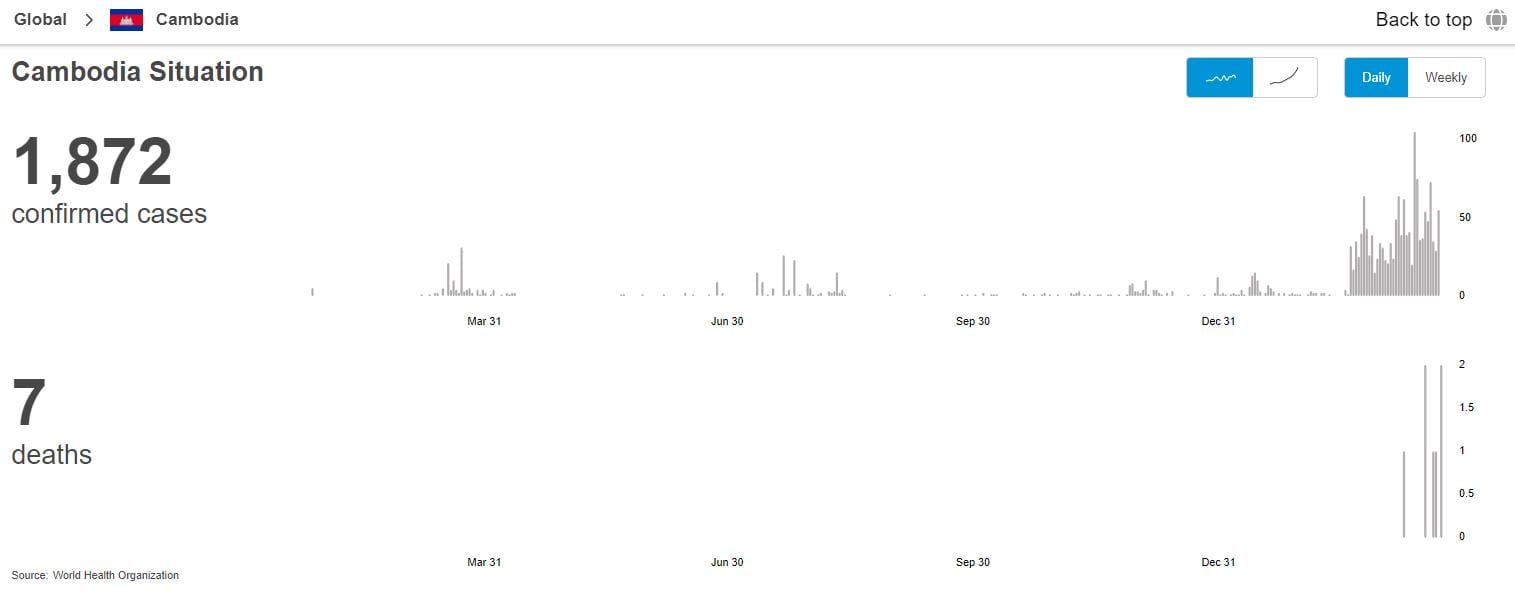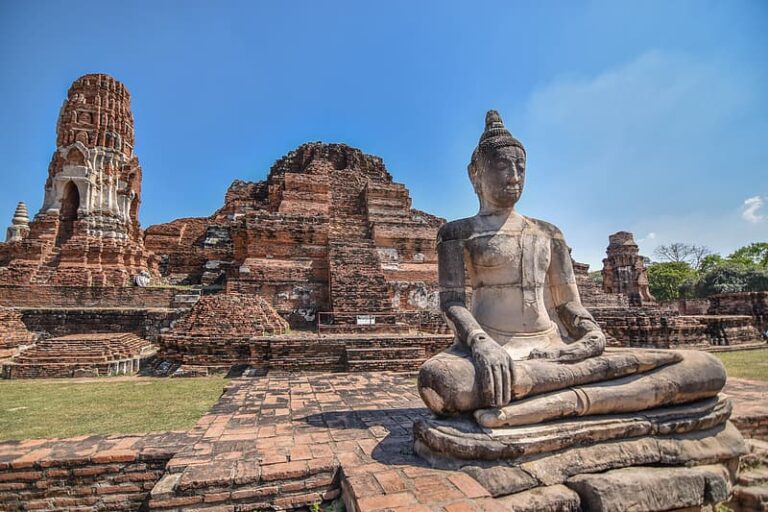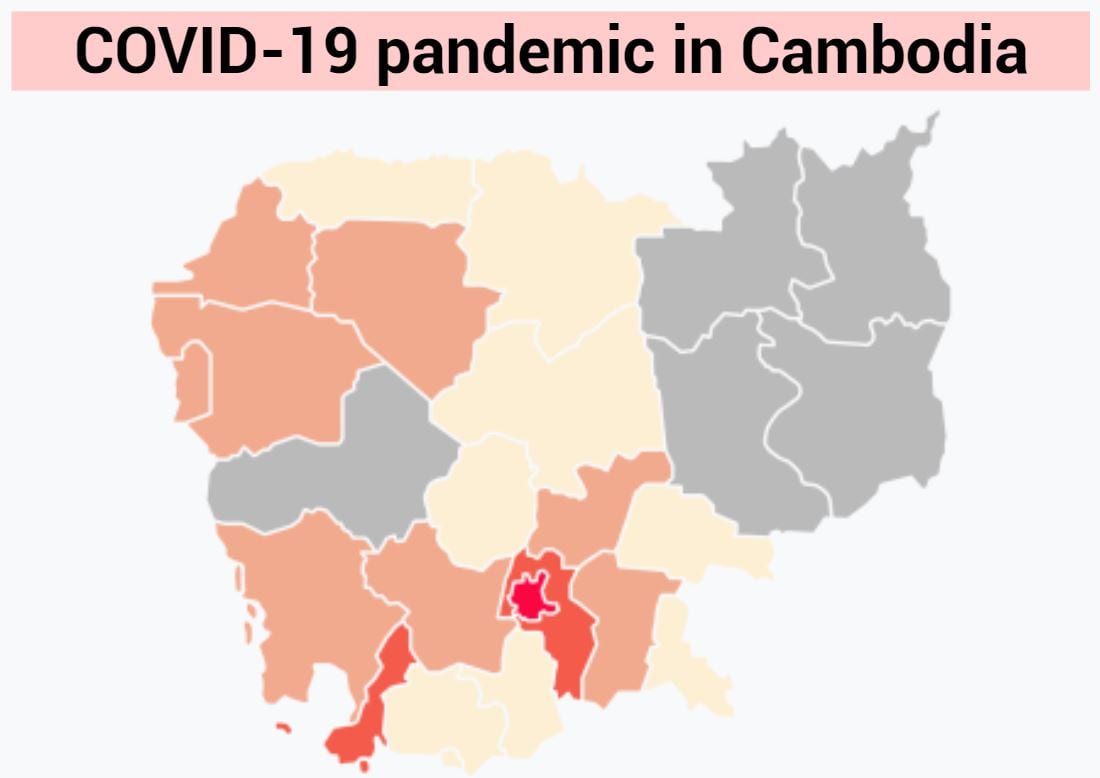Cambodia is not open to tourists at the moment, but travelers with other purposes can be admitted.
All travelers need to show proof of a negative COVID-19 test result no older than 72 hours, health insurance covering up to 50.000 and they must agree to a 14-day quarantine.
Health insurance should include treatment for COVID-19. Foreign visitors can opt to purchase health insurance in the country for USD 90, while Cambodian nationals and residents can use their own insurance as proof.
Latest updates
March 26
On February 20 the country had a severe outbreak that started in a quarantine facility and spread to the community. Since then, the number of cases has been growing every day and authorities have not been able to contain it.
On March 20, Cambodian authorities decided to issue stricter measures to contain the outbreak. The measures include a mandatory 14-day quarantine for all arrivals.
Is COVID-19 test needed?
Yes. Both foreigners and citizens entering Cambodia need to take a test at a certified medical facility in their country of origin (or departure) in the 72 hours prior to their arrival. The negative results must be in either English or French.
Health insurance that covers COVID-19 treatment
Visitors must present proof of health insurance to cover all COVID-19 medical expenses for up to USD $50.000 USD (Read our article on insurance plans that covers COVID travel)
An alternative is to buy a 20-day insurance package for 90 USD from FORTE insurance company.
*Only foreigners with diplomatic or official visas (A or B visas) and Cambodian citizens are exempt.
Visitors must bring a USD $2,000 “deposit”
There is a 2,000 USD “deposit” visitors will need to pay on arrival either with cash or credit card. The money from the travelers’ deposit will be used to cover any payments needed while using health insurance services or for government-mandated procedures:
- Transportation to and from testing or medical facilities
- Doctor fees and
- Other costs not covered by the visitors’ insurance
How can a traveler get their deposit back?
- If everybody in the flight tests negative for COVID-19, travelers can claim the unspent amount left on their deposit. (Source)
- If at least one person tests positive, the money will be used to cover the fees for their accommodation, transport, and food while their quarantine at a government-approved facility.
COVID-19 test on arrival
All arriving travelers will be taken to a COVID-19 testing facility where they will take a test and wait until all results are available (24 hours).
For more information on restrictions and requirements click here.
Do travelers need official visas to entry Cambodia?
For now, that’s a yes. Cambodia has suspended all visa exemptions (Tourist visa, visas on arrival and e-visas.) This means ALL FOREIGN VISITORS need to acquire a proper visa through a Cambodian Embassy or Diplomatic mission before traveling.
Can Americans visit Cambodia?
Yes. They will need to contact the Cambodian embassy in their country and request a visa. Tourist visas, however, are not being issued at the moment.
COVID-19 situation in Cambodia
Cambodia was one of the safest places to visit during COVID-19. At the moment, Cambodia is experiencing an outbreak that has spread to several regions and includes many foreign nationals.
Cambodia is one of the 21 countries that do not have any CDC warnings.
Is it safe to visit Cambodia now?
Yes, Cambodia is safe to visit now. According to the CDC organization, it has only a warning level 1 which means that the risk is very low. (Source: CDC.gov)
Commercial airlines are traveling from and to Cambodia
These airlines are operating at a limited capacity.
COVID-19 situation in Cambodia
As of March 26, Cambodia has only reported 1,968 COVID cases and 7 deaths. Cambodia still remains one of the best countries in handling the Coronavirus spread.

According to the official reports, Cambodia has had 7 deaths and 1872 positive cases. However, due to the detentions, attacks and jail time 15 Cambodian journalists have had to face between July and September, for reporting on the pandemic, these figures may not be entirely trustworthy.


